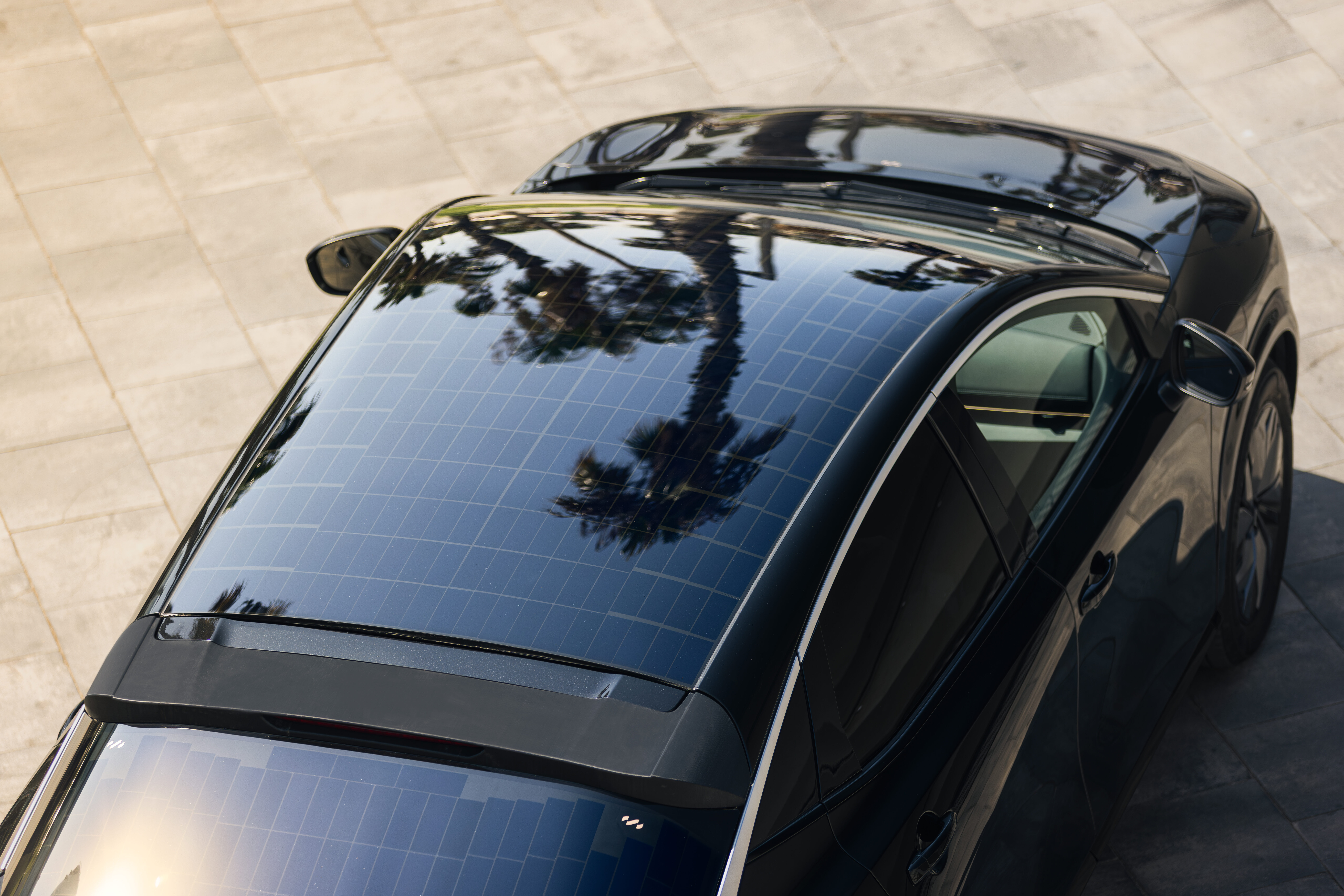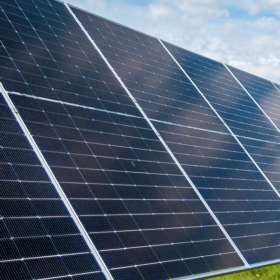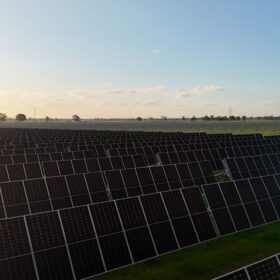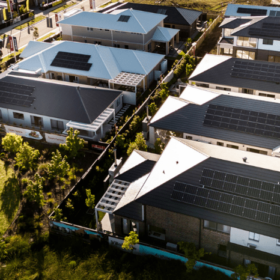Up to 75% of metropolitan Sydney’s annual energy needs could be met if every rooftop in the city was fitted with solar panels, according to a new report released by urban policy think tank Committee for Sydney.
The Sydney as a Renewable Energy Zone report, co-authored by Arup and Arcadis, shows that the rollout of solar panels on every rooftop in metropolitan Sydney would generate 21 GW of renewable energy, enough to power three quarters of the city’s annual energy needs.
The report recommends mandating solar installations on all new residential and industrial buildings and improving access to household and community battery energy storage systems to transform the city into a coordinated renewable energy zone (REZ).
Committee for Sydney’s resilience program director, Sam Kernaghan, said the measures outlined in the report would be difficult to achieve, but not impossible with almost 30% of Sydneysiders having already installed rooftop solar.
“Having solar installed on absolutely every rooftop to reach 75% of Sydney’s energy needs is a major challenge, and we may not get there in full, but this finding shows what’s possible,” he said.
Committee for Sydney said the transformation of the city into a coordinated REZ will require collaboration between governments, regulatory bodies and industry, along with physical and digital assets working in tandem, including smart meters, virtual power plants and coordination platforms in an environment of rapidly evolving technologies.
Key recommendations outlined in the report include incentives to encourage deployment of larger-scale industrial rooftop solar with excess energy to be shared with properties that can’t access solar. It also calls for enhanced access for those without solar or battery assets, and planning reforms that accelerate the approval processes and encourage renewable energy adoption, including reconsideration of heritage and zoning restrictions.
“Sydney could meet at least 75% of its annual energy needs through rooftop solar paired with battery storage,” the report says. “While central business district (CBD) buildings might cover only 5% of their energy needs through rooftop solar, industrial estates could produce between 500% to 1,000% of their energy requirements, creating substantial excess power that could benefit nearby residential areas, including apartment buildings that currently lack access to solar.”
“The existing electricity distribution network across Sydney is already in place and underutilised, presenting an immediate opportunity to boost local energy independence and reliability.”
Marc England, Chief Executive of Ausgrid, which owns and operates the electrical networks that service large parts of Sydney, said the report presents a real opportunity to truly shift the dial on renewable energy,
“There is huge rooftop solar potential sitting on commercial and industrial buildings in the existing network which is currently unused and which we could harness to give back to our customers and businesses,” he said.
“For Ausgrid, in Sydney alone, this could help provide a significant amount of the area’s energy needs. The challenge is there are currently barriers, and a lack of incentives for building owners, preventing our ability to take advantage of this opportunity.”
Electrification advocacy group Rewiring Australia Chief Executive Office Francis Vierboom said mandating solar for new builds is a “no-brainer.”
“Our cities should be powered by rooftop solar and community batteries that let every household participate, whether they have a roof or not,” he said, adding that it is time to update outdated electricity market rules which are no longer fit for purpose.
“The electricity market was designed for an era of coal-fired power, not for the rooftops of everyday Australians,” he said. “It’s time to rewrite the rules to empower households and communities to lead our renewable energy future.”
This content is protected by copyright and may not be reused. If you want to cooperate with us and would like to reuse some of our content, please contact: editors@pv-magazine.com.









By submitting this form you agree to pv magazine using your data for the purposes of publishing your comment.
Your personal data will only be disclosed or otherwise transmitted to third parties for the purposes of spam filtering or if this is necessary for technical maintenance of the website. Any other transfer to third parties will not take place unless this is justified on the basis of applicable data protection regulations or if pv magazine is legally obliged to do so.
You may revoke this consent at any time with effect for the future, in which case your personal data will be deleted immediately. Otherwise, your data will be deleted if pv magazine has processed your request or the purpose of data storage is fulfilled.
Further information on data privacy can be found in our Data Protection Policy.